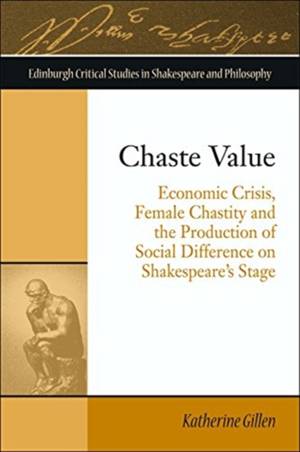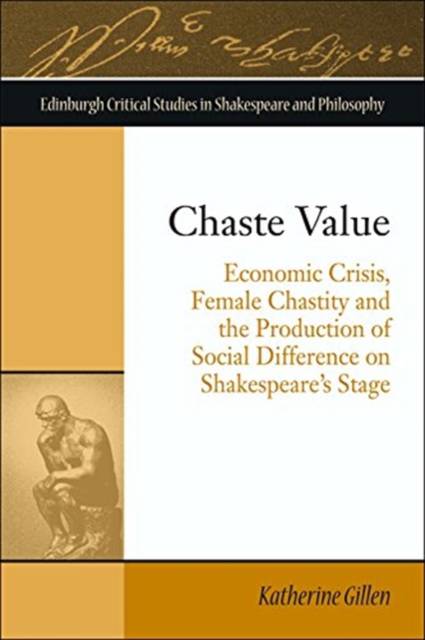
- Afhalen na 1 uur in een winkel met voorraad
- Gratis thuislevering in België vanaf € 30
- Ruim aanbod met 7 miljoen producten
- Afhalen na 1 uur in een winkel met voorraad
- Gratis thuislevering in België vanaf € 30
- Ruim aanbod met 7 miljoen producten
Chaste Value
Economic Crisis, Female Chastity and the Production of Social Difference on Shakespeare's Stage
Katherine GillenOmschrijving
Examines the way that theatrical representations of chastity inform broader concerns about the commoditisation of people in early capitalism
Chaste Value reassesses chastity's significance in early modern drama, arguing that presentations of chastity inform the stage's production of early capitalist subjectivity and social difference. Plays invoke chastity--itself a quasi-commodity--to interrogate the relationship between personal and economic value. Through chastity discourse, the stage disrupts pre-capitalist ideas of intrinsic value while also reallocating such value according to emerging hierarchies of gender, race, class, and nationality. Chastity, therefore, emerges as a central category within early articulations of humanity, determining who possesses intrinsic value and, conversely, whose bodies and labor can be incorporated into market exchange.
Key Features
Reevaluates early modern drama's engagement with female chastity, situating them within broader anxieties about personal commoditization in early capitalist EnglandOffers an update/corrective to new economic critical approaches by demonstrating how concerns about personal and economic value shape emerging hierarchies of race, class, gender, and nationalityUniquely synthesizes current topics of concern in early modern literary studiesOffers innovative readings of seventeen literary works in relation to early modern debates about value, exchange, commoditization, and subjectivity
Specificaties
Betrokkenen
- Auteur(s):
- Uitgeverij:
Inhoud
- Aantal bladzijden:
- 320
- Taal:
- Engels
- Reeks:
Eigenschappen
- Productcode (EAN):
- 9781474444385
- Verschijningsdatum:
- 26/02/2019
- Uitvoering:
- Paperback
- Formaat:
- Trade paperback (VS)
- Afmetingen:
- 155 mm x 229 mm
- Gewicht:
- 430 g

Alleen bij Standaard Boekhandel
Beoordelingen
We publiceren alleen reviews die voldoen aan de voorwaarden voor reviews. Bekijk onze voorwaarden voor reviews.











